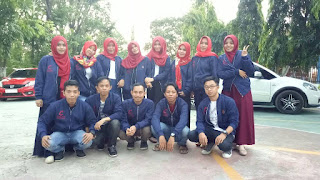Local language which is also known as mother tongue has to be protected and always be maintained in process. As a part of a local culture and also as national precious wealth, local language has more complexity than people think. In Indonesia, the existence of local language has spread in whole territory. South Sulawesi for instance has various ethnics (Bugis, Makassar, Mandar and Toraja) and each of them use local dialect to show their identity. These four ethnics are the largest in South Sulawesi and one of the most interesting local languages to discuss is Bugis Bone. However, Bone has a fascinating language and continues to receive attention from expert because not even a few phenomenon that arise in a range of Bone dialect.
The Bugineses particularly in Bone is known will not kill the word by means they avoid the consonant letter at the end of words if possible. This is the reason of Buginese often experience excess-letters in pronounce a word. This term is often referred to ókkots by the Makassar young man. Ókkots often befall to Buginese because their speaking character prioritizes to the smoothness of utterance. When a word ends with consonant (huruf mati in Bahasa) it is revived by adding a vowel at the end of the utterance. This pattern can be obviously seen in the words of botol (bottle) and motor (motorcycle) in Bahasa, it becomes botolo (botol) and motoro (motor) in Bugis Bone. Another example, to refine the words in an utterance, it is also done by adding a consonant at the end, like the word amang instead of aman in Bahasa which mean safe, also the same pattern in word macan in Bahasa transform into macang which mean a tiger. This refinement is formed by considering the sound of the utterance. Basically if the words sound harsh, there will be a vowel or consonant to cover it in order to form a polite word. It is clearly described that a language can be powerful that it is treated like a live creature.
Buginese character is evidently reflected in language activities, they always put subtleties in language, trying to avoid a harsh expression and unpleasant word has always been attached to the language of Buginese especially in Bone. The interesting case occurs in when calling second person pronoun. Idi’ is used instead of using kamu in Bahasa. In Buginese literal translation, the word idi’ can be used to describe the word “you” and “we”, and commonly people in Bone use idi’ which truthfully means the subject of the speaker sees himself in other people. The same condition in Makassar, native speakers also use kita as second person pronoun “you” where in Bahasa kita means “we”. The egalitarianism or equality contained in the word of idi’ educates us that all people have the same position and have to be treated respectfully.
Local language as a mother tongue (L1) has many moral values in its existence. Buginese in Bone basically prioritize softness words and, and treat the letters which is the basic form language as well as possible. That is the rationale of Buginese in Bone perception try to avoid harsh words. Local language in Bone be an inherent identity and widely known in the community not only the uniqueness of his accent but more to bring nobleness like refining the words. By that reason, the pride of the language used must always be imparted to the next generation.
The Bugineses particularly in Bone is known will not kill the word by means they avoid the consonant letter at the end of words if possible. This is the reason of Buginese often experience excess-letters in pronounce a word. This term is often referred to ókkots by the Makassar young man. Ókkots often befall to Buginese because their speaking character prioritizes to the smoothness of utterance. When a word ends with consonant (huruf mati in Bahasa) it is revived by adding a vowel at the end of the utterance. This pattern can be obviously seen in the words of botol (bottle) and motor (motorcycle) in Bahasa, it becomes botolo (botol) and motoro (motor) in Bugis Bone. Another example, to refine the words in an utterance, it is also done by adding a consonant at the end, like the word amang instead of aman in Bahasa which mean safe, also the same pattern in word macan in Bahasa transform into macang which mean a tiger. This refinement is formed by considering the sound of the utterance. Basically if the words sound harsh, there will be a vowel or consonant to cover it in order to form a polite word. It is clearly described that a language can be powerful that it is treated like a live creature.
Buginese character is evidently reflected in language activities, they always put subtleties in language, trying to avoid a harsh expression and unpleasant word has always been attached to the language of Buginese especially in Bone. The interesting case occurs in when calling second person pronoun. Idi’ is used instead of using kamu in Bahasa. In Buginese literal translation, the word idi’ can be used to describe the word “you” and “we”, and commonly people in Bone use idi’ which truthfully means the subject of the speaker sees himself in other people. The same condition in Makassar, native speakers also use kita as second person pronoun “you” where in Bahasa kita means “we”. The egalitarianism or equality contained in the word of idi’ educates us that all people have the same position and have to be treated respectfully.
Local language as a mother tongue (L1) has many moral values in its existence. Buginese in Bone basically prioritize softness words and, and treat the letters which is the basic form language as well as possible. That is the rationale of Buginese in Bone perception try to avoid harsh words. Local language in Bone be an inherent identity and widely known in the community not only the uniqueness of his accent but more to bring nobleness like refining the words. By that reason, the pride of the language used must always be imparted to the next generation.





















